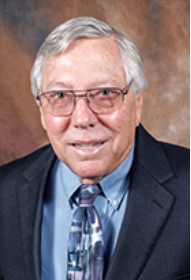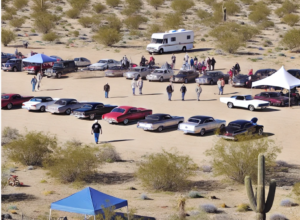Punished for having ineligible player on roster; less than 10% of 38 players from Yavapai County; none from Sedona/Verde Valley

 The Yavapai Community College 2024 baseball team had a discouraging season, and was forced to forfeit 24 games due to an ineligible player on its roster. Additionally, the team fell far short of its goal to recruit 25% of its players from Yavapai County, a target set in 2020.
The Yavapai Community College 2024 baseball team had a discouraging season, and was forced to forfeit 24 games due to an ineligible player on its roster. Additionally, the team fell far short of its goal to recruit 25% of its players from Yavapai County, a target set in 2020.
The 38-man roster includes only three players from Yavapai County, along with four players from Canada and one from Japan. The remaining players come from various states, including Texas, California, Minnesota, Hawaii, Maryland, and other parts of Arizona.
You may recall that in April 2020, Vice President Clint Ewell informed the Governing Board of the College’s goal to increase County student athletic involvement by at least 25%. At the time, District Governing Board Chair Deb McCasland confirmed Mr. Ewell’s statement.
In February 2021, the athletic department stated its “recruiting policy is to recruit within the county.” However, the department also noted that “historically, the best student-athletes in Yavapai County want to leave the county to pursue their athletic endeavors. Due to sheer numbers, most recruiting is done outside of Yavapai County.”


 Yavapai Community College will receive a portion of the $4.5 million allocated by Arizona Governor Katie Hobbs earlier this year to support the College Workforce Scholarship program. The funds will be shared among nine other community colleges.
Yavapai Community College will receive a portion of the $4.5 million allocated by Arizona Governor Katie Hobbs earlier this year to support the College Workforce Scholarship program. The funds will be shared among nine other community colleges. Despite decades of requests, the Prescott-based Community College administrators have consistently ignored the need for proper Verde Valley Campus signage, a significant problem that persists to this day. Notably, the Governing Board allocated half a million dollars for a sign to CTEC near the Prescott airport in the last budget year, highlighting the disparity in attention and resources between the east and west sides of Mingus mountain.
Despite decades of requests, the Prescott-based Community College administrators have consistently ignored the need for proper Verde Valley Campus signage, a significant problem that persists to this day. Notably, the Governing Board allocated half a million dollars for a sign to CTEC near the Prescott airport in the last budget year, highlighting the disparity in attention and resources between the east and west sides of Mingus mountain. Unlike the massive financial investments made by the College on the Prescott side of Mingus over the past decades—such as the professional tennis complex, the heated Olympic-sized wading and swimming pool, student residence renovation, the practice soccer field, the recent multi-million dollar purchase of a 42-acre camp with over 60 buildings, and the multimillion-dollar auditorium—this proposal would not require significant financial resources. However, it would mark a meaningful beginning in revitalizing the campus and strengthening ties with the surrounding communities and their residents.
Unlike the massive financial investments made by the College on the Prescott side of Mingus over the past decades—such as the professional tennis complex, the heated Olympic-sized wading and swimming pool, student residence renovation, the practice soccer field, the recent multi-million dollar purchase of a 42-acre camp with over 60 buildings, and the multimillion-dollar auditorium—this proposal would not require significant financial resources. However, it would mark a meaningful beginning in revitalizing the campus and strengthening ties with the surrounding communities and their residents. In a recent press release, Yavapai Community College president Dr. Lisa Rhine reported on the Community College’s Virtual Reality pilot program. She explained that the College “piloted VR through a structured and experimental approach, involving multiple departments and classes, including 3D design, computer science, art history, CNC, construction, culinary, healthcare, HVAC, manufacturing and others. During the pilot year, more than 600 students participated in the VR programs, and 150 faculty members and 47 staff members were involved, along with 282 community members.”
In a recent press release, Yavapai Community College president Dr. Lisa Rhine reported on the Community College’s Virtual Reality pilot program. She explained that the College “piloted VR through a structured and experimental approach, involving multiple departments and classes, including 3D design, computer science, art history, CNC, construction, culinary, healthcare, HVAC, manufacturing and others. During the pilot year, more than 600 students participated in the VR programs, and 150 faculty members and 47 staff members were involved, along with 282 community members.” The Yavapai Community College Student Government Association (SGA) opened a free professional clothing shop in April for students on the Prescott Campus. According to the College’s press release, President Dr. Lisa Rhine was the catalyst for the business-clothing shop, “planting the seed” in mentoring meetings with SGA leaders who noted the difficulty some students face affording professional attire for job interviews and other occasions.
The Yavapai Community College Student Government Association (SGA) opened a free professional clothing shop in April for students on the Prescott Campus. According to the College’s press release, President Dr. Lisa Rhine was the catalyst for the business-clothing shop, “planting the seed” in mentoring meetings with SGA leaders who noted the difficulty some students face affording professional attire for job interviews and other occasions. On Wednesday afternoon, July 10, Yavapai Community College will hold an open house at its Prescott Valley Center for learning about healthcare careers. The Center is located at 3800 North Glassford Hill Road, Prescott Valley. The Open House will run for two hours from 3 p.m. to 5 p.m.
On Wednesday afternoon, July 10, Yavapai Community College will hold an open house at its Prescott Valley Center for learning about healthcare careers. The Center is located at 3800 North Glassford Hill Road, Prescott Valley. The Open House will run for two hours from 3 p.m. to 5 p.m. On June 15, 2024, Manzanita Outreach and Yavapai Community College partnered in a Healthy cooking class created by Faculty Director of Culinary Arts, Chef Carl Miller, and Chef Eric Seif. The purpose of the one-day class was to learn to cook four dishes, all of which utilized fresh items provided in the Manzanita Outreach food assistance boxes it delivers throughout the County.
On June 15, 2024, Manzanita Outreach and Yavapai Community College partnered in a Healthy cooking class created by Faculty Director of Culinary Arts, Chef Carl Miller, and Chef Eric Seif. The purpose of the one-day class was to learn to cook four dishes, all of which utilized fresh items provided in the Manzanita Outreach food assistance boxes it delivers throughout the County. The five-member Yavapai Community College Governing Board appears to be on a three month break. Its last publicly scheduled meeting for 2024 was the workshop held on the Prescott Campus May 28, 2024. Although the meeting schedule for the remainder of the year has yet to be posted, it appears that the first business meeting of the Board will not be held until sometime in September.
The five-member Yavapai Community College Governing Board appears to be on a three month break. Its last publicly scheduled meeting for 2024 was the workshop held on the Prescott Campus May 28, 2024. Although the meeting schedule for the remainder of the year has yet to be posted, it appears that the first business meeting of the Board will not be held until sometime in September. Yavapai Community College has been diligently developing its Performing Arts program on the Prescott Campus over the past few years. To further that development, it will hold “The Elevated Actor” Summer Actor Intensive training program from Monday, June 24, to Friday, June 28, at the Jim & Linda Lee Performing Arts Center.
Yavapai Community College has been diligently developing its Performing Arts program on the Prescott Campus over the past few years. To further that development, it will hold “The Elevated Actor” Summer Actor Intensive training program from Monday, June 24, to Friday, June 28, at the Jim & Linda Lee Performing Arts Center.